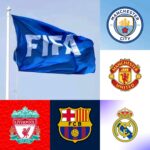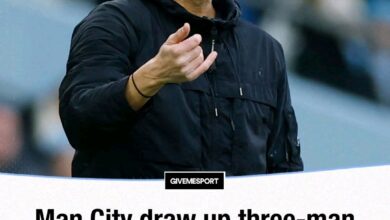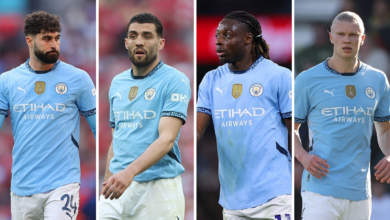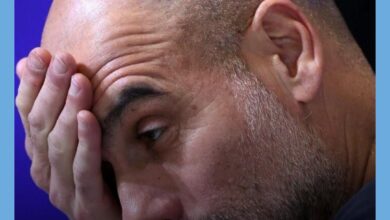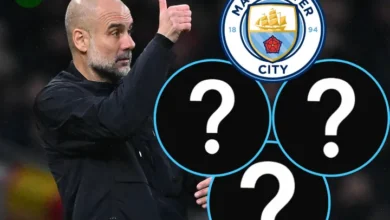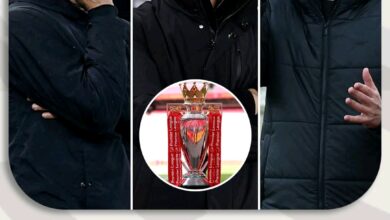Man City fans find themselves in Club World Cup position few saw coming
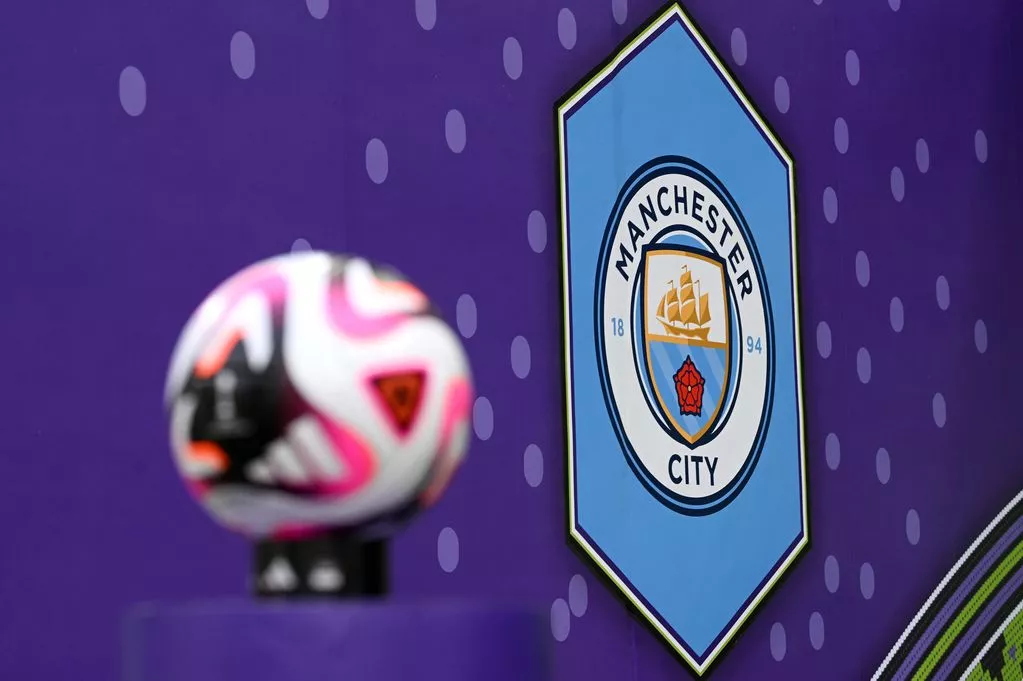
The summer of 2025 has brought an unexpected shift in Manchester City’s fortunes and, perhaps more significantly, in their supporters’ collective mindset. As Pep Guardiola’s squad embarked on their journey to the United States for FIFA’s revamped Club World Cup, the atmosphere surrounding the club has transformed from one of weary resignation to genuine anticipation. This transformation represents more than just seasonal optimism; it signals a fundamental reset for a club that endured one of its most challenging campaigns in recent memory.
The Context of Change
To understand the magnitude of this shift, one must first appreciate the depths from which Manchester City has emerged. The 2024-25 season will be remembered as a watershed moment in the Guardiola era—not for its triumphs, but for its stark reminder that even the most successful footballing machines require constant maintenance and renewal. The campaign exposed the fragility that can lurk beneath sustained excellence, revealing how quickly confidence can erode and how dramatically form can fluctuate.
City’s struggles last season were multifaceted and deeply concerning for supporters who had grown accustomed to relentless success. Week after week, fans found themselves experiencing something they had almost forgotten: the gnawing anxiety of uncertainty. Match days that had once been celebratory affairs became exercises in endurance, with supporters arriving at the Etihad Stadium or gathering in pubs around the world with trepidation rather than expectation.
The tactical decisions that had once seemed inspired began to appear puzzling, even counterproductive. Guardiola’s team selections, previously viewed as masterstrokes of strategic thinking, became sources of frustration and debate. Social media platforms buzzed with criticism and second-guessing, while traditional supporters’ forums became echo chambers of discontent. The manager who had revolutionized English football suddenly found himself questioning fundamental assumptions about his philosophy and methods.
The Tournament Nobody Wanted
Against this backdrop, FIFA’s decision to expand and relocate the Club World Cup initially felt like salt in the wound. The tournament, reimagined as a 32-team competition held in the United States, was met with skepticism from multiple quarters. Traditional football purists questioned the need for yet another competition in an already congested calendar. Players and coaches expressed concerns about fixture congestion and the physical demands of intercontinental travel. Supporters, already emotionally drained from a disappointing domestic campaign, wondered whether they had the energy to invest in what many perceived as a glorified exhibition tournament.
The timing seemed particularly unfortunate for Manchester City. Coming off a season where every match felt like an uphill battle, the prospect of representing England in a new tournament felt more like a burden than an honor. The early morning kick-off times for UK audiences—with matches scheduled at inconvenient hours to accommodate American television schedules—only added to the sense that this was a competition designed more for commercial interests than sporting integrity.
Yet something remarkable has happened in the weeks leading up to the tournament. What began as reluctant participation has evolved into genuine enthusiasm, and the factors driving this transformation reveal much about the psychology of football fandom and the cyclical nature of sporting fortunes.
The Power of Renewal
The catalyst for this change has been Manchester City’s aggressive approach to the summer transfer window. After a season where squad depth was exposed as inadequate and tactical options appeared limited, the club’s hierarchy responded with decisive action. The arrival of new signings has injected fresh energy into a dressing room that had grown stale, while the departure of players who had lost their spark has cleared space for new voices and perspectives.
Tijjani Reijnders’s acquisition from AC Milan represents perhaps the most significant statement of intent. The Dutch midfielder’s technical ability and tactical intelligence offer Guardiola new possibilities in the center of the park, addressing one of the most glaring weaknesses from the previous campaign. His £46.3 million transfer fee demonstrates the club’s commitment to quality over quantity, prioritizing transformative signings rather than squad padding.
The pursuit of Rayan Cherki from Lyon has generated particular excitement among supporters. The young French playmaker’s reputation as a creative force—described by his former academy coach as “an artist”—suggests a player capable of providing the unpredictability and flair that City’s attack sometimes lacked last season. His potential €40 million move represents an investment in both immediate impact and long-term potential.
These signings, combined with other strategic additions, have fundamentally altered the squad dynamics. Training ground reports speak of renewed competition for places, elevated intensity levels, and a palpable sense of excitement among both new arrivals and established players. The psychological impact of these changes cannot be overstated; they signal to everyone associated with the club that last season’s struggles were an aberration rather than the beginning of decline.
Guardiola’s Tactical Renaissance
Perhaps more intriguingly, the new personnel has apparently sparked a tactical renaissance in Guardiola himself. Sources close to the training ground suggest that the manager has been experimenting with formations and approaches that were rarely seen during his time at City. The arrival of players with different skill sets has opened up tactical possibilities that were previously unavailable, allowing Guardiola to explore variations of his philosophy that had remained theoretical.
The Club World Cup presents an ideal laboratory for these experiments. Unlike domestic competitions where every point carries enormous weight, this tournament offers a unique opportunity to test new systems against high-quality opposition without the crushing pressure of league standings or European qualification. For a manager whose career has been defined by tactical innovation, this freedom represents an irresistible challenge.
Supporters have picked up on this renewed sense of experimentation. Where last season’s team selections often felt predictable and constrained by limited options, there is now genuine curiosity about how Guardiola will utilize his expanded toolkit. The mere possibility of seeing new combinations and tactical variations has reignited interest in ways that traditional pre-season friendlies rarely achieve.
The American Adventure
The tournament’s location in the United States has also contributed to the growing enthusiasm. While initial reactions focused on the inconvenience of time zones and the artificial nature of taking European football to American soil, the novelty factor has begun to work in the competition’s favor. For many supporters, this represents an opportunity to see their team in a completely different context, free from the familiar rhythms and expectations of domestic competition.
The infrastructure and organization surrounding the tournament have exceeded expectations. Reports from the City camp in Miami describe excellent training facilities, professional organization, and a level of hospitality that has impressed players and staff alike. The club’s social media channels have captured moments of players enjoying the Florida sunshine, engaging in activities impossible during the English winter, and generally appearing more relaxed than they had for months.
This change of scenery appears to have had a profound psychological effect. Training sessions that might have felt routine in Manchester have taken on a different character in Miami. The players seem to be rediscovering their enjoyment of the game, while the coaching staff has reported improved morale and engagement levels. Sometimes, the simple act of breaking routine can unlock previously hidden potential.
Fan Psychology and the Cycle of Hope
The transformation in supporter sentiment also reflects broader truths about football fandom and the human tendency toward hope and renewal. After months of disappointment and frustration, City supporters were perhaps more ready for optimism than they initially realized. The combination of new signings, fresh tactical approaches, and an exotic tournament setting has provided the perfect catalyst for this psychological reset.
Social media engagement around the club has shifted dramatically. Where once every announcement was met with skepticism or criticism, there is now genuine excitement about team news, training updates, and tactical speculation. Supporters are analyzing formation photos with the intensity of intelligence analysts, debating the potential impact of new signings with renewed vigor, and expressing genuine anticipation for upcoming matches.
This enthusiasm is particularly notable given the tournament’s scheduling challenges. Matches kicking off at 2 AM UK time would typically struggle to maintain audience engagement, yet early indicators suggest that City supporters are prepared to make the sacrifice. The novelty of the competition, combined with renewed optimism about the team’s prospects, has overcome the practical barriers that might normally deter casual viewers.
Strategic Implications
From a strategic perspective, the Club World Cup offers Manchester City several valuable opportunities beyond mere trophy accumulation. The tournament provides an extended period of competitive football that allows new signings to integrate with existing squad members under match conditions rather than just training ground scenarios. This accelerated integration process could prove crucial when the Premier League season begins.
The competition also offers opportunities for squad rotation and fitness management that are rarely available in other tournaments. With matches spread across several weeks and the pressure somewhat reduced compared to domestic competitions, Guardiola can experiment with different combinations while ensuring that key players maintain their fitness levels without being overworked.
Perhaps most importantly, success in this tournament could provide the psychological foundation for a sustained return to form. While critics might dismiss the Club World Cup as secondary to domestic and European competitions, winning any major tournament creates momentum and confidence that can carry over into more traditionally significant competitions.
The Broader Football Context
Manchester City’s renewed enthusiasm for the Club World Cup also reflects broader changes in football’s global landscape. The sport’s increasing internationalization means that tournaments like this are becoming more significant markers of elite status. Success in FIFA’s premier club competition—even in its revamped format—carries weight in discussions about global footballing hierarchy.
The financial implications are also substantial. Prize money for the tournament reaches into tens of millions of dollars, providing resources that can be reinvested in squad development and infrastructure improvements. For clubs operating under financial fair play regulations, tournament prize money represents one of the few avenues for significant revenue increases without relying on player sales or commercial deals.
The global exposure provided by the tournament cannot be ignored either. Manchester City’s brand continues to expand internationally, and success in a competition broadcast across multiple continents provides marketing value that extends far beyond the immediate sporting achievement. This is particularly relevant as the club continues to build its global fanbase and commercial partnerships.
Looking Forward
As Manchester City prepares for their opening fixture against Al Ain, the transformation in supporter sentiment represents more than just seasonal optimism. It reflects the club’s successful navigation of a challenging period and their ability to reinvent themselves when necessary. The combination of strategic recruitment, tactical innovation, and psychological renewal has created conditions for success that were absent during the previous campaign’s struggles.
The Club World Cup may have been initially dismissed as an unwelcome distraction, but it has evolved into something more significant: an opportunity for redemption, experimentation, and renewal. Whether this optimism proves justified will depend on performances over the coming weeks, but the mere fact that excitement has replaced resignation represents a victory in itself.
For Manchester City supporters, the early morning kick-offs no longer seem like an inconvenience but rather an adventure. The tournament that nobody wanted has become the competition that everyone is talking about. In football, as in life, perspective can change everything, and sometimes the most unexpected journeys lead to the most memorable destinations.
The Club World Cup may not have been in anyone’s plans a year ago, but it has arrived at precisely the moment when Manchester City needed it most. As Guardiola’s reinvigorated squad takes the field in Florida, they carry with them not just the hopes of their supporters but the possibility of transformation itself. In a sport where momentum can shift in an instant, this tournament represents far more than just another trophy to pursue—it represents the chance to rediscover what made them champions in the first place.
